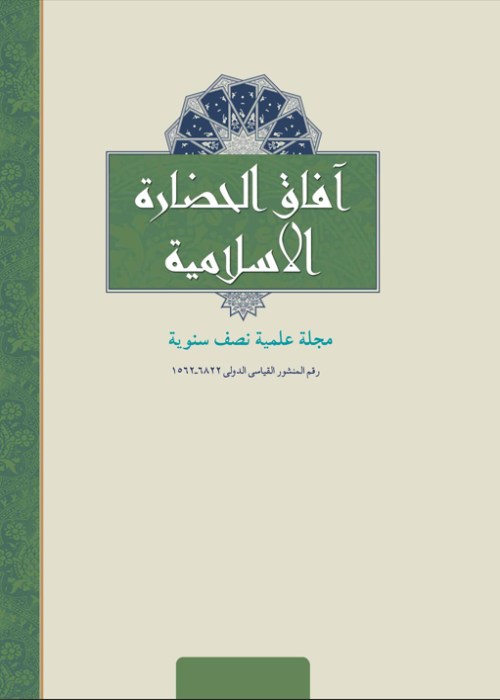The Connection between the Thought of the Distortion of the Qur’an and the Theory Rejection of the Collection of the Qur’an during the time of theProphet (PBUH)
The advent and formation of theQuranic text has reached new horizons and proportions in the light of confessional and non-confessional studies. In addition to theosophical aspects, the notion of “distortion of Qur’an” has historical aspects which have been neglected in studies of the subject due to theosophical predominance. Most studies on distortion have focused on opposing the distortability of the Qur'an from various perspectives, rational, narrative and consensus on the immunity of the Qur'an from distortion. Although recent valuable research has been carried out on the analysis of documents related to distortion, no independent article has been collected specifically on the relationship between the idea of distortion and the lack of collection of the Qur'an at the time of the Prophet. The first and most basic hypothesis of distortion is the scattering of the Qur'an following the death of the Holy Prophet, which was first shaped in the form of hadiths and over time became an idea. Although these hadiths were not called distortions; however, their content undoubtedly provided the basis for other claims. Later, a number of hadiths on distortion were made and dealt with. This study seeks to demonstrate that after the demise of the Holy Prophet and before the emergence of Islamic sects, foundations for the thought of distortion had been laid, which explains how, on the one hand, through ignoring the considerable number of hadiths pointing out that collection, collation, and codification of the Qur’an was supervised and managed by the Holy Prophet, it is maintained that the Qur’an was not collected at the time of the Prophet, and on the other hand, the collection of the Qur’an by the caliphs is portrayed as the only factual alternative. This article, with a critical approach to the issue of distortion from this angle, while emphasizing the robustness of the reasons for collecting the Qur'an during the Holy Prophet’s life, evaluates the evidences of distortion believers. It focuses on the hadiths: “collection of the Qur'an by the caliphs”, “Ali’s Mus'haf” with emphasis on its difference with the existing Qur'an, "differentiations in readings" and “terms on what God has sent down” and attempts to highlight the weakness, non-rigorur and instability of the idea of distortion. Scholars, in their critique to the collection of the Qur'an by the caliphs implicitly or explicitly, while considering that leaving the Qur'an scattered by the missionary as irrational (Mousavi, 1995, 28; Milani, 1417 AH, 55; Darvaze, 1/86; 63 and 64) have considered it in conflict with the Qur'an as a miracle. In addition, the implication of rival hadiths and reports (assuming they are true without any evidence for being false) is also an incomplete or interpretable reason to support the claim of the distortion believers (Boroujerdi, 1415 AH, 482). In addition, it should be added that the design and processing of the Qur'an after the Holy Prophet can be analyzed and evaluated in line with the role of rulers in overlooking and establishing. (See: Poster, 1379, pp. 449-448). Importantly, for Muslims, regardless of their sects and ideology, the only thing that they have in common or more precisely are in consensus is the authenticity of the Qur'an. Companions and followers, eyewitnesses of the revelation of the Qur'an to the Prophet (PBUH) and witnesses of the frequency and quotation of the Qur'an, based on people hearings and notes, were so numerous that not the slightest change or modification in the text of the Qur'an is hidden from their keen eyes. Emphasizing the collection of the Qur’an at the time of the Holy Prophet through criticizing the documentation of the collection of the Qur’an by caliphs, this study regards the belief in the distortion as the consequence of accepting that the Qur’an was not collected during the Holy Prophet, and sees all this as accounted for by the role played by rulers in accessions and depositions
- حق عضویت دریافتی صرف حمایت از نشریات عضو و نگهداری، تکمیل و توسعه مگیران میشود.
- پرداخت حق اشتراک و دانلود مقالات اجازه بازنشر آن در سایر رسانههای چاپی و دیجیتال را به کاربر نمیدهد.



